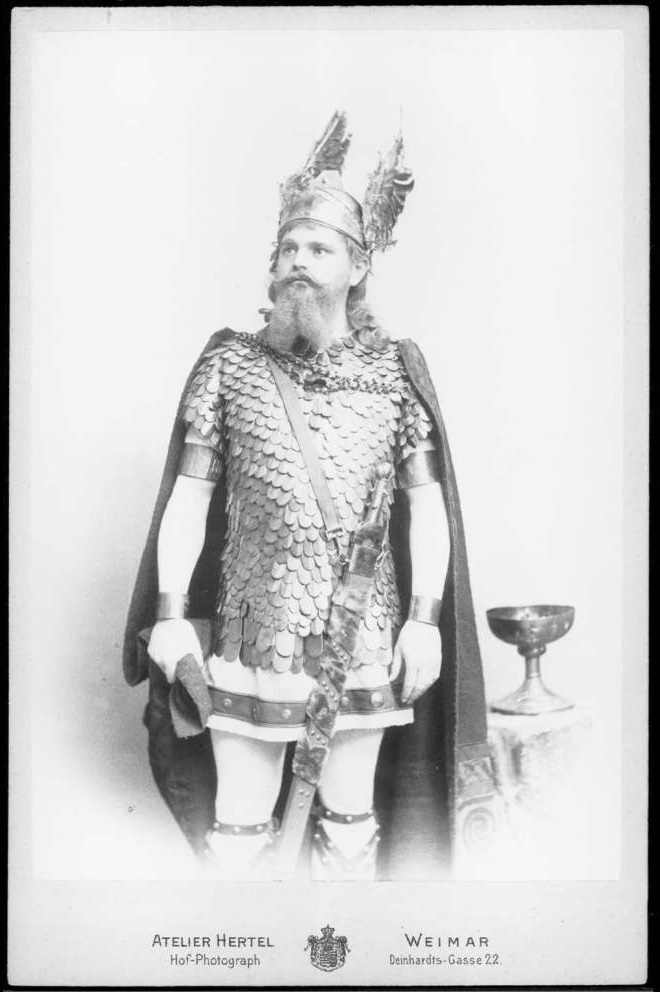His real name was just Hans Buff; for the stage, he added the name of his home town. He was from a reputable Hessian family (his
great aunt Lotte Buff had been an acquaintance of Goethe, and the model for Charlotte
in his Werther). After studying law for a short while, he took voice lessons in Dresden, and started with a beginner's
contract at the Dresden opera in 1887. From 1888 to 1894, he was at the Court Theater of Weimar, where he was Germany's first
Werther (!) in 1892, and took part in the world premiere of Guntram by Richard Strauss (10 May 1894).
1894–97, he sang in Wiesbaden, 1897/98 at the Court Opera in Vienna, from 1899 onwards in Dresden. Successful guest
appearances took him to Prague, Berlin, to the Vienna Volksoper, Frankfurt, Darmstadt, Wrocław/Breslau and so on.
His repertory was very wide, from Almaviva, Elvino, Tonio (Fille du régiment) and Chapelou to Arnold, Manrico, Radamès and
Lohengrin.
He shot himself on a train while traveling back to Dresden from a guest performance in Berlin. Whether the reason was a vocal
decline to which some reviews had previously hinted, or a beginning mental disorder, remained a mystery even for his
contemporaries.
Reference 1: Kutsch & Riemens, reference 2 and picture source
In RA format
Discography
Grammophon, Berlin, 1905
185r La dame blanche (Boieldieu): Komm, o holde Dame 3-42324
Grammophon, Berlin, 1906
4643h Mignon (Thomas): Leb wohl! Gib Kraft dem Herzen 3-42701
4644h Rigoletto (Verdi): Ich seh' die heißen Zähren 3-42637
4645h La traviata (Verdi): Ach, ihres Auges Zauberblick 3-42679
Grammophon, Berlin, 1907
3068r Così fan tutte (Mozart): Wie schön ist die Liebe 3-42817
3070r Il barbiere di Siviglia (Rossini): Sieh schon die Morgenröte 3-42818
Go Home
